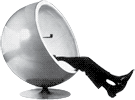This menu: MathMenu
Matematik B
Put \(b_n=a_1 + a_2 + \ldots + a_n\). Since \(a_{n+1}=b_{n+1} - b_{n}\) the \(b_i\):s will be defined recursively by
$$b_1=2, , b_{n+1} = b_{n} + \frac{n}{b_n}.$$
We want to prove that \(a_{2009} \gt 0.9995\). Translating to the \(b_i\):s we get the equivalent condition
$$
b_{2009}-b_{2008} = \frac{2008}{b_{2008}} \gt 0.9995 \Leftrightarrow b_{2008} \lt \frac{2008}{0.9995}.
$$
Now \(2009 \lt \frac{2008}{0.9995}\) so if we can prove that \(b_{2008} \leq 2009\) we are done.
We propose that \(b_{n} \leq n+1\) for \(n = 1,2,\ldots\). This is clearly true for \(n=1\). Suppose that \(b_{m} \leq m+1\) for some \(m\). Since
$$
b_{m+1} = b_{m} + \frac{m}{b_{m}}
$$
We are led to consider the (maximum of) the function \(f(x) = x + \frac{m}{x}\) for \(2 \leq x \leq m+1\). It's easy to verify that \(f\) has a minimum for \(x=\sqrt{m}\), declines to the left of this value, and grows to the right. Hence \(f\) has it's maximum in one of the endpoints of the interval.
Since \(2 \leq b_m \leq m+1\) \(b_i\) is obviously an increasing sequence, since \(a_i \gt 0\) for all \(i\), so \(2 \leq b_m\)) we get
$$
b_{m+1} = b_{m} + \frac{m}{b_{m}} \leq \textrm{max}(2+\frac{m}{2}, m+1 + \frac{m}{m+1}) = m+1 +\frac{m}{m+1} \lt m+2
$$
and the proposition is proved (by induction).
In particular \(b_{2008} \leq 2008+1=2009\).
